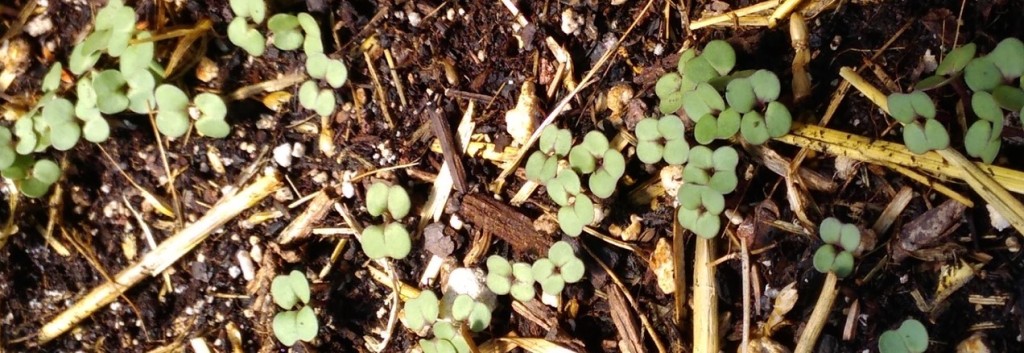I write like I garden. The creative processes are virtually identical in my mind. This Summer Series reflects on the ties between these two worlds.
From April through early June, I am surrounded by new young plants. Sprouts emerge in starter pots in my living room and under cold frames outdoors. Rapini, swiss chard, and spinach are chugging along. They don’t mind an occasional duck into freezing temps at night. They kinda’ like it actually.
I checked on the tough little greens and crucifers this morning. Bad news. The rapini seed came up beautifully. I wasn’t sure it would, so I planted it thickly. All of it germinated. The seeds did a little too well. I have to thin them, or they’ll stunt each other later on.
I have to kill a few. Lots actually. Most of them.
The resistance that washes over me feels familiar. Of course I’ve thinned plants thousands of times. So the motion of plucking a tiny sprout out of the dirt, the pop as the delicate root yields, gives up, that literal visceral feeling is familiar. But there’s another layer.
That edge of regret over each delicate seedling left to wilt on a stone path, that sadness echoes the grief I feel over scene-cutting. Or the decision that a certain character may have to be removed entirely. Or a beloved conversation doesn’t serve the book.
It’s clutter. It will sap the energy from the really important scenes. It’s got to go.
There’s no way through but through. I must screw together my courage and start pulling. Sometimes whole clusters of scenes, sometimes a delicate pluck here and there. For the good of the final harvest, I must thin.
In writing, how do you find out what needs to go?
Starting out, you’ve got to ask an editor or a friend with a literary eye. You don’t know at first; you have to get an outside opinion. Over time, your own editorial eye grows and you begin to see clutter and muddy scenes and undefined, inessential characters in your own work. It comes with practice. But at first you need expert help, just as you might need a gardening mentor initially to learn how to correctly thin a row of peas.
In both these worlds, there is a small healing balm: Nothing needs to be wasted. The sprouts that I thin are tossed in the compost bin. They’ll be reincarnated as other plants some other day. In writing, I keep files full of cut scenes. They’re all usable material for some other purpose. They may become magazine articles, examples in a lecture, or a fully-grown short story. Someday.
Those files full of cut scenes and character concepts are my literary compost pile. Every writer needs one. It’s useful and it consoles your soul in the midst of the thinning process.
Go ahead, you can do it. Pull that scene.

